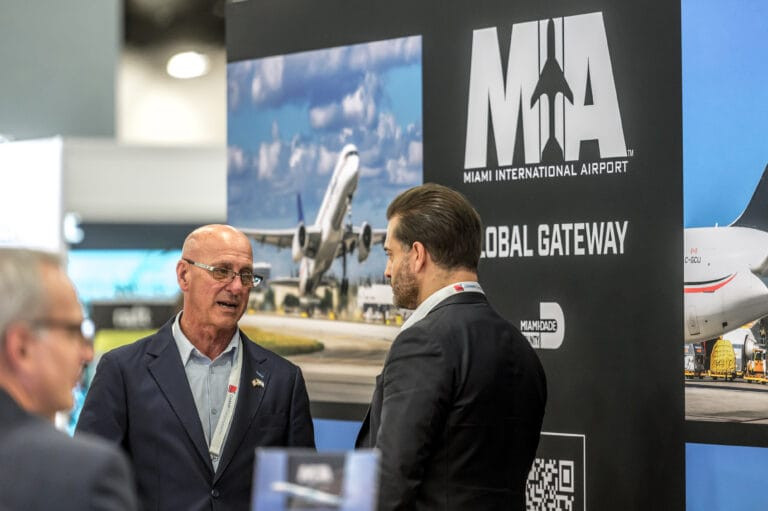Last week, Air Cargo Forum 2024 gathered leaders and innovators from across the logistics and transportation industries to spotlight Miami’s evolution from a gateway to the Americas to a central player in global trade.
Through vibrant discussions and forward-thinking panels, the forum revealed how Miami’s strategic advantages—geography, infrastructure, and innovation—are driving its transformation into a worldwide logistics powerhouse.
Regional role
For decades, Miami has been the go-to hub for air cargo trade with Latin America and the Caribbean. Its location, coupled with established trade networks, has made it indispensable for industries ranging from agriculture to pharmaceuticals.
But it’s not just Miami’s location that gives it an edge. Specialised facilities for handling perishables, pharmaceuticals, and high-value goods have positioned the city as a trusted partner for sensitive cargo. Miami International Airport (MIA), complemented by the seamless integration of its port and air cargo operations, ensures efficient multimodal logistics.
As Latin American economies continue to modernise and diversify, Miami is adapting to meet these changing needs. Investments in cutting-edge technology and upgraded facilities highlight the city’s commitment to staying ahead of the curve when it comes to international trade.
Bridging continents
While Miami’s dominance in the Americas is well-established, Air Cargo Forum underscored its growing importance as a global hub. Increasingly, the city is a critical link between Europe, Asia, and the Americas, facilitating trade across continents.
Industries like electronics, textiles, and pharmaceuticals heavily rely on Miami’s connectivity to redistribute goods efficiently. Products arriving from Europe or Asia can quickly reach Latin America, while goods from Latin America destined for global markets flow seamlessly through Miami’s advanced shipping network.
The e-commerce boom has further accelerated this trend. With rising demand for fast, cross-border shipping, Miami’s infrastructure is uniquely positioned to handle the high volume of small, time-sensitive shipments that define today’s online retail economy.
Staying competitive
A recurring theme at the forum was Miami’s strategic investment in infrastructure and innovation. The city is in the midst of a significant expansion, incorporating advanced technology to enhance efficiency and transparency in freight handling.
Particular emphasis was placed on cold chain logistics—essential for temperature-sensitive goods like pharmaceuticals and fresh produce. The state-of-the-art facilities located throughout the city ensure it remains a key player in these precision-driven supply chains.
Sustainability also took centre stage. As the logistics industry pushes for greener practices, companies are embracing alternative fuels, energy-efficient infrastructure, and other initiatives to reduce their carbon footprint. By aligning with global sustainability efforts, companies in the city are also positioning themselves as leaders in eco-conscious logistics.
Opportunities and challenges
The forum didn’t shy away from the challenges Miami faces. Volatility in global trade, economic uncertainties, and competition from other logistics hubs all pose risks. Miami’s reliance on Latin American markets means it must remain agile to respond to economic shifts and policy changes.
Yet these challenges also present opportunities. Miami’s proven adaptability and resilience are its greatest assets. By leveraging its strong infrastructure, global connections, and deep cultural ties with trade partners, the city is well-equipped to navigate and thrive amid industry changes.
Beyond logistics
Let’s pause for a second because logistics industry aside, Miami is home to Formula 1, Hard Rock Stadium, the Miami Heat, Inter Miami, world-class dining, tremendous night life, and world-renown beaches. Perhaps cultural cornerstones also add to the appeal of not only millions of travelers but of global businesses as well.
Air Cargo Forum explored Miami’s role as a global magnet for business. The city’s favorable trade policies, strategic location, and status as a cultural hub make it an attractive destination for companies seeking to establish operations in the Americas and beyond.
Miami’s multilingual workforce and international business community further strengthen its appeal as a logistics hub.
Moreover, Miami’s role extends beyond the movement of goods—it’s about fostering collaboration.
Events like the Air Cargo Forum bring together stakeholders from across the globe, showcasing Miami as a centre for innovation and dialogue in the logistics industry.




